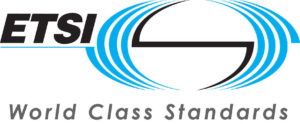CNIT going to lead the first international project standardizing Attribute Based Encryption techniques for Mobile, Cloud and Internet of things platforms.
So phia Antipolis, FRANCE. CNIT will lead the first international project aimed at including Attribute Based Encryption techniques in standard architectures devised for Mobile, Cloud and Internet of things systems.
phia Antipolis, FRANCE. CNIT will lead the first international project aimed at including Attribute Based Encryption techniques in standard architectures devised for Mobile, Cloud and Internet of things systems.
Traditional encryption schemes protecting data are sided with a software infrastructure providing access control facilities. However, several threats may compromise the software infrastructure and the confidentiality of information.
Attribute Based Encryption (ABE) is a public key cryptographic scheme that provides both confidentiality and access control exclusively leveraging on mathematical algorithms, without relying on a software based enforcement of access control policies. This makes ABE ideal for not fully trusted environments e.g., Cloud, IoT and some mobile platforms where the trustworthiness of the infrastructure might be not guaranteed.
Promoted by European Telecommunications Standards Institute (ETSI), by Q1/2018 the project will provide interoperable methods based on ABE cryptographic primitives, siding existing access control solutions and giving an effective technical foundation of that “right to data portability” included in the EU General Data Protection Regulation that will effectively come into force in 2018.
About CNIT. CNIT is a non-profit Consortium among 37 Italian Universities, including also six research units belonging to institutes of the National Research Council (CNR), and four National Laboratories. CNIT conducts research, innovation and training in the field of the Information and Communication Technology. More than 1,300 people, belonging to the participating universities, collaborate with CNIT, while the number of employees is more than 100. The annual budget is around 23 million euros, with revenues only from private companies and competitive funding programs. CNIT has an outstanding national and international reputation, confirmed also by the latest Italian Evaluation of Research Quality of the Italian Ministry for Education, University and Research.
About ETSI. ETSI, the European Telecommunications Standards Institute, produces globally-applicable standards for Information and Communications Technologies (ICT), including fixed, mobile, radio, converged, broadcast and Internet technologies. ETSI standards enable the technologies on which business and society rely. For example, ETSI standards for GSM™, DECT™, Smart Cards and electronic signatures have helped to revolutionize modern life all over the world.

